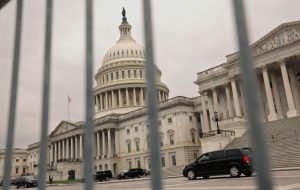A closer look at key historic events that took place on August 5:
In 2011, Thailand elects its first female prime minister
Yingluck Shinawatra was elected as Thailand’s first female prime minister on August 5. Her election marked a significant milestone in Thai politics and gender equality.
In 2010, thirty-three mine workers become trapped in Chile
A collapse at the San José copper-gold mine in Chile trapped 33 miners 700 meters underground. Their dramatic rescue, 69 days later, captivated the world and highlighted issues of mining safety.
In 1963, the Nuclear Test-Ban Treaty is signed
The Partial Nuclear Test Ban Treaty was signed by the United States, the Soviet Union, and the United Kingdom. This treaty prohibited nuclear weapons tests in the atmosphere, in outer space, and under water, aiming to reduce radioactive contamination.
In 1960, Burkina Faso declares independence
Burkina Faso, then known as Upper Volta, declared its independence from France. This event marked the end of colonial rule and the beginning of the country’s journey as an independent nation in West Africa.
In 1926, Harry Houdini performs his last stunt
Legendary magician Harry Houdini performed his final public stunt in Boston, Massachusetts, staying in an underwater airtight coffin for some 90 minutes. Known for his incredible escape acts, Houdini’s last performance solidified his legacy as one of the greatest magicians in history.
In 1914, the first electric traffic light is installed
The world’s first electric traffic light was installed in Cleveland, Ohio. This invention revolutionized traffic management and improved road safety in urban environments.
In 1772, Russia, Prussia, and Austria partition Poland
The First Partition of Poland was formalized on August 5, with Russia, Prussia, and Austria dividing large portions of Polish territory among themselves. This event marked the beginning of the end for the Polish-Lithuanian Commonwealth.


